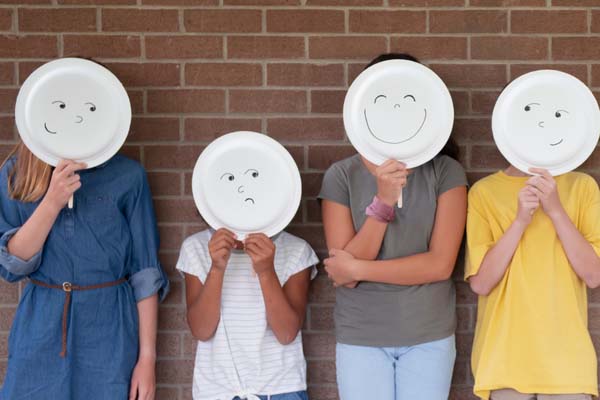
Social Emotional Learning plays a huge role in today’s educational space. Educators strive to assist students in negotiating their complex emotions including things like negative self-talk. Negative self-talk is so common and can be very difficult to overcome. It’s easy to fall into the trap of berating ourselves over mistakes and telling ourselves we aren’t good enough. We would never speak to a friend or even a stranger like that, so why do we do it to ourselves? Sometimes students need a bit of a pick-me-up and the following exercise can help them become aware of their own negative self-talk and dismiss it.
Instructions:
- Individually, have students write a list of up to three negative things that they have thought or said about themselves. Allow them to share some of their negative thoughts or keep them private if they prefer. Sharing their thoughts with the group can help students see that others may have had similar negative thoughts about themselves, and that they aren’t alone.
Another suggestion is to have students write out their negative thoughts on Post-it Notes and submit them to the teacher so they can display them anonymously where everyone can see. Then students can then see that others have similar negative thoughts but no one has to volunteer their thoughts.
- Take a moment to think about this negative inner voice in your head. Alberto from the movie Luca calls it “Bruno.” Give your negative inner voice a name. It can be anything except for the student’s own name.
- Come up with a character for the negative inner voice. What do they look like? What does their voice sound like? How do they move? If time permits, have students draw a sketch of the character, have them get up as a group and move around the space as their character, or have them partner up and try out different voices for their character.
- How would you tell your negative voice to be quiet or stop putting you down? Make up a phrase. Alberto says “Silenzio Bruno!” when his negative inner voice talks to him. For example, students could say “Thanks for your input,” “That’s not true,” “Stop lying,” “Be quiet,” or any other phrase that dismisses the negative thought.
- Have everyone stand up. Choose a negative thought to say. At the same time, have students say their thoughts out loud in their negative inner voice’s character voice/persona.
- Then, students will stand up straight in an actor’s neutral position — standing tall, feet flat on the floor, shoulders back, chin up. At the same time, in a powerful voice (their own), they will say the phrase that they chose to dismiss the negative thought. Feel free to repeat this step as many times as you wish.
- Have students make a big show of scrunching up their original lists of negative thoughts and throwing them away.
After the game, it could be helpful to have students discuss how that activity felt and how it might have helped them create a new way to address negative self-talk!
Drama Kids International creates an environment for children and teens where they can be comfortable being their authentic selves. Through thoughtful activities and games, students explore complex emotions and situations. Get more information about our program here!
